Recognizing the Ultimate Sacrifice: Thank You for Your Service
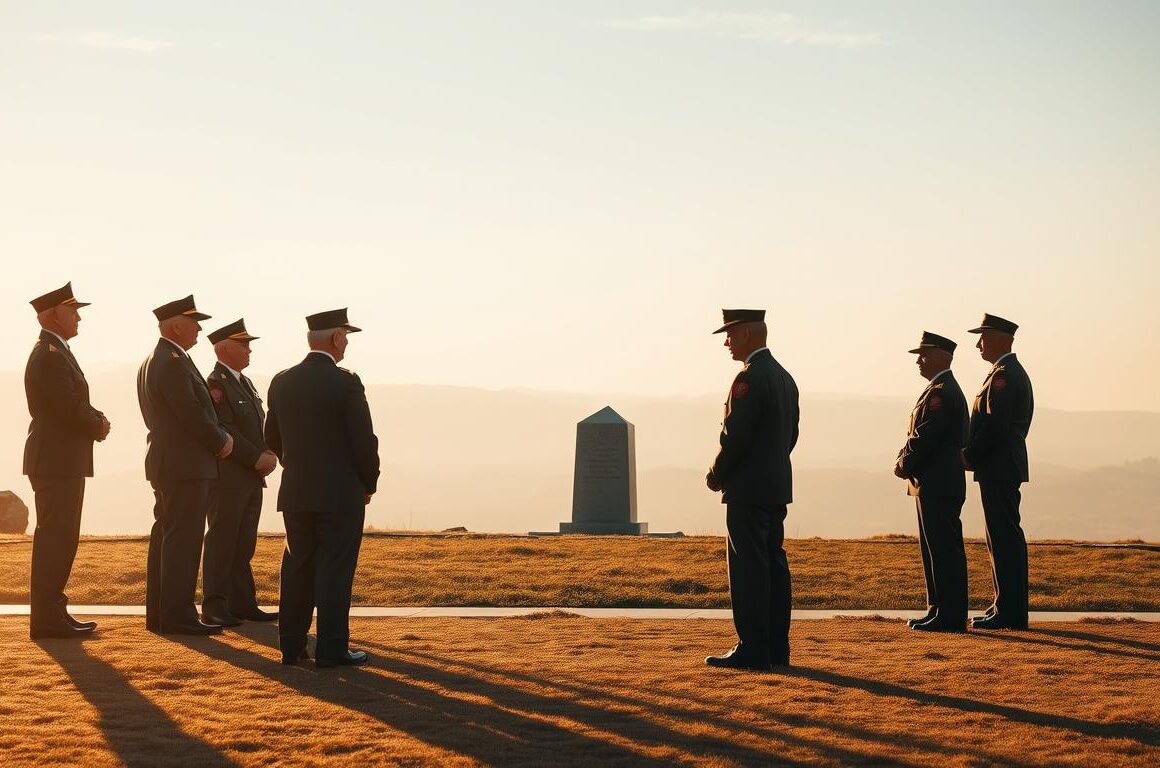
Thank you for your service — these simple yet powerful words hold immense meaning for every veteran. They reflect our deepest gratitude for the courage and sacrifice shown by military personnel.
Military service members and their families make significant sacrifices to protect our nation and its values. Expressing gratitude for their dedication is essential, as it acknowledges the challenges they face and the importance of their role.
The sacrifices made by veterans are multifaceted, ranging from time away from family to the physical and emotional toll of their duties. Acknowledging these sacrifices is crucial for building a supportive community that values their contributions.
By showing appreciation for the sacrifices made by military personnel, we honor their commitment and service. This appreciation can take many forms, from personal gestures to community-wide initiatives.
Key Takeaways
- Veterans and their families make significant sacrifices for the nation.
- Expressing gratitude is crucial for acknowledging their challenges.
- A supportive community is built by valuing veterans’ contributions.
- Appreciation for military personnel can be shown in various ways.
- Recognizing sacrifices made by veterans is essential for their well-being.
The Meaning Behind Military Service in America
Understanding the significance of military service in America requires a look into its historical context and the evolution of its armed forces. The role of the military has transformed over the years, from its early days to the present, reflecting changes in societal values, technological advancements, and global politics.
Historical Context of Service and Sacrifice
The history of military service in the United States is marked by significant sacrifices made by service members and their families. From the Revolutionary War to the present day, the U.S. military has been involved in numerous conflicts, each leaving its mark on the nation’s history and the lives of those who served.
The sacrifices made during these conflicts have not only shaped the country’s history but have also influenced the identity of its military. The values of duty, honor, and country have been central to the ethos of the U.S. military, guiding service members through times of war and peace.
| Conflict | Years | Notable Contributions |
|---|---|---|
| Revolutionary War | 1775-1783 | Established the United States as an independent nation |
| World War II | 1941-1945 | Played a crucial role in the Allied victory, significantly impacting the global balance of power |
| Vietnam War | 1955-1975 | Marked by significant social and political controversy in the U.S., affecting public perception of the military |
The Modern Military: Who Serves Today
Today’s U.S. military is a diverse force, composed of individuals from various backgrounds and demographics. The modern military has evolved to include more women, minorities, and individuals from different socio-economic statuses, reflecting broader societal changes.
Demographic shifts have led to a more inclusive military, with service members coming from different parts of the country and representing a wide range of skills and experiences. The modern military also faces unique challenges, including the impact of technology on warfare and the need for specialized skills in areas such as cybersecurity.
Branches of the U.S. Military: Different Paths of Service
The United States military is composed of multiple branches, each with its unique mission and role in defending the nation. This diversity allows service members to choose a path that aligns with their skills, interests, and career goals.
Army, Navy, Air Force, Marines, Coast Guard, and Space Force
The U.S. military consists of six branches: the Army, Navy, Air Force, Marines, Coast Guard, and Space Force. The Army is the largest branch, responsible for land-based military operations. The Navy focuses on naval operations, ensuring the freedom of the seas. The Air Force handles air operations, providing air superiority and support for ground and naval forces. The Marines are known for their elite fighting force, often engaging in expeditionary and amphibious operations. The Coast Guard operates under the Department of Homeland Security during peacetime, but can be transferred to the Department of the Navy during wartime, and is responsible for maritime law enforcement, marine environmental protection, and search and rescue. The newest branch, the Space Force, is tasked with protecting American interests in space.
Unique Challenges and Contributions of Each Branch
Each branch of the US military faces unique challenges and makes distinct contributions to national security. For instance, the Army and Marines often engage in ground combat operations, facing challenges related to terrain and insurgent tactics. The Navy and Coast Guard deal with maritime security issues, including piracy and smuggling. The Air Force and Space Force are at the forefront of technological advancements, managing air and space operations. A comparison of these branches highlights their diverse roles and the importance of their contributions.
| Branch | Primary Role | Unique Challenges |
|---|---|---|
| Army | Land-based operations | Ground combat, terrain challenges |
| Navy | Naval operations | Maritime security, piracy |
| Air Force | Air operations | Air superiority, technological advancements |
| Marines | Expeditionary and amphibious operations | Ground combat, rapid deployment |
| Coast Guard | Maritime law enforcement, search and rescue | Maritime security, environmental protection |
| Space Force | Space operations | Space security, technological advancements |
Understanding What “Thank You for Your Service in the Military” Really Means
When we say “thank you for your service in the military,” it’s more than just a phrase; it’s an acknowledgment of sacrifice. This expression of gratitude is directed towards individuals who have dedicated their time, effort, and sometimes their health and well-being to serve their country. The significance of this phrase lies not just in the words themselves, but in the emotions and sentiments they convey.
Beyond the Words: The Weight of Gratitude
The weight of gratitude carried in these words is multifaceted. It acknowledges the sacrifices made by service members, including time away from family, exposure to dangerous situations, and the psychological strain of military life. Gratitude also recognizes the values that military service embodies, such as duty, honor, and country. When we thank someone for their service, we are not just expressing thanks; we are acknowledging these values and the challenges that come with upholding them.
A list of what this gratitude entails includes:
- Acknowledgment of the sacrifices made by service members and their families
- Appreciation for the values embodied by military service
- Recognition of the challenges faced during and after service
Gratitude is a powerful tool for connecting with veterans and showing appreciation for their service.
Why Acknowledgment Matters to Veterans
Acknowledgment matters to veterans because it validates their experiences. For many veterans, the transition back to civilian life can be challenging, and feeling appreciated can make a significant difference. Acknowledgment can take many forms, from a simple “thank you” to more tangible forms of support. What is crucial is that it is sincere and comes from a place of genuine understanding and respect.
Veterans often report that acknowledgment helps them feel seen and valued. Some key reasons why acknowledgment is important include:
- It validates their sacrifices and experiences
- It provides a sense of being appreciated and valued
- It can aid in the healing process for those dealing with service-related challenges
By acknowledging the service of veterans, we can help foster a sense of community and support.
The Sacrifice Behind the Uniform
Behind every uniform, there’s a story of sacrifice, hardship, and resilience. Military service members face a multitude of challenges that are not immediately apparent to the casual observer.
Physical and Mental Challenges of Military Life
Service members are often required to undergo rigorous training, which can be physically demanding and mentally taxing. The physical challenges include exposure to harsh environments, strenuous activities, and the risk of injury or death.
The mental challenges are equally daunting, with service members facing stress, anxiety, and the psychological impact of their experiences. The mental toll of military service can be significant, leading to issues such as PTSD.
- Exposure to traumatic events
- High levels of stress and anxiety
- The need for resilience and adaptability

Time Away from Family and Loved Ones
One of the most significant sacrifices made by service members is the time spent away from their families and loved ones. Deployments can last from months to years, causing strain on relationships and making it difficult to maintain a sense of normalcy.
The emotional toll of being away from loved ones can be significant, with service members often feeling isolated and disconnected from their support networks.
“The separation from family and friends is one of the hardest things about being in the military. It’s not just the time apart, but the uncertainty and worry that comes with it.”
The impact on families is also considerable, with spouses and children having to cope with the absence of their loved one, managing daily life, and dealing with the stress of having a family member in service.
Impact of Military Service on Families
The impact of military service extends far beyond the individual service member, affecting families in profound ways. Military families face unique challenges that are often overlooked, from frequent relocations to coping with the absence of a loved one during deployment.
Military life can be particularly demanding on families, requiring resilience, adaptability, and a strong support network. The sacrifices made by these families are significant and deserve recognition.
The Role of Military Spouses
Military spouses play a vital role in supporting their service member partners. They often manage the household, care for children, and maintain a sense of normalcy despite the challenges posed by military life. Key responsibilities include:
- Managing family affairs during deployments
- Supporting their partner through the stresses of military service
- Adapting to new environments with each relocation
Military spouses are the backbone of military families, providing emotional support and stability. Their contributions are invaluable to the well-being of the family and the success of the service member’s career.
Children of Service Members: The Hidden Heroes
Children of service members, often referred to as “military brats,” face unique challenges growing up. They experience frequent moves, parental deployments, and the stress of having a parent in a dangerous profession. Despite these challenges, many military children develop remarkable resilience and adaptability.
The experiences of military children can shape their character, teaching them valuable life skills such as flexibility, independence, and patriotism. It’s essential to recognize and support these young individuals, acknowledging the sacrifices they make as part of a military family.
The Journey Home: Transitioning from Military to Civilian Life
For many service members, the journey home is just the beginning of another challenging journey. Transitioning to civilian life can be a complex and daunting task, filled with both opportunities and obstacles.
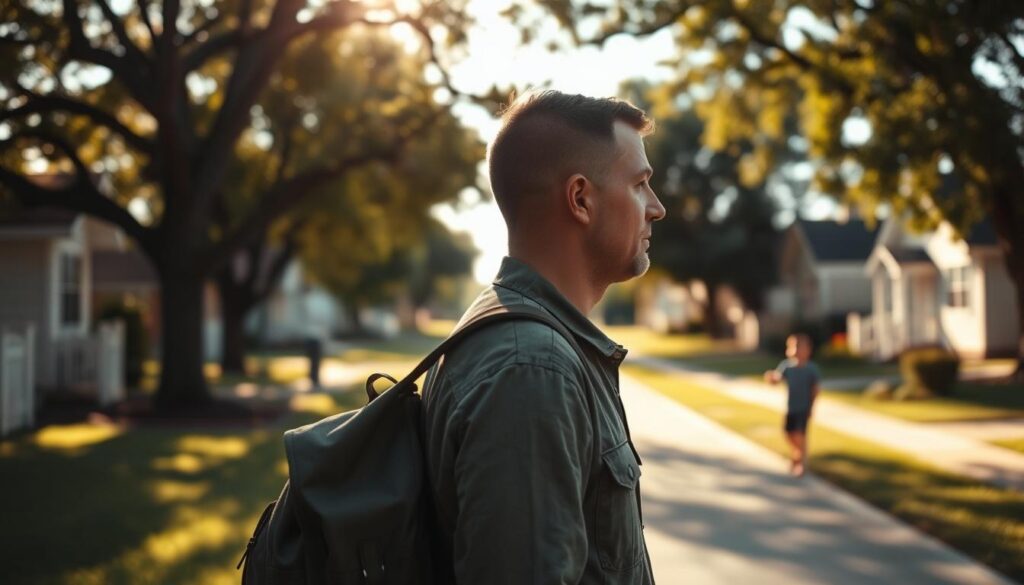
Challenges Veterans Face After Service
Veterans often encounter significant challenges as they transition to civilian life. These can include finding employment, adjusting to a new daily routine, and coping with the psychological aftermath of their service. The transition requires a multifaceted support system that addresses these various needs.
A key challenge is the cultural shift from a highly structured military environment to the more flexible, yet often less structured, civilian world. This can lead to feelings of disorientation and confusion.
| Challenge | Description | Support Needed |
|---|---|---|
| Employment | Translating military skills to civilian job market | Career counseling, resume building |
| Psychological Adjustment | Coping with PTSD, readjusting to family life | Mental health services, family support |
| Social Integration | Building new social networks, finding community | Social events, veteran organizations |
Success Stories and Resilience
Despite these challenges, many veterans demonstrate remarkable resilience and achieve great success in their civilian lives. They leverage their skills, experience, and the strong networks they’ve built during service to excel in various fields.
Success stories of veterans who have successfully transitioned serve as powerful motivators and reminders that, with the right support, transitioning to civilian life can be a positive and fulfilling experience.
Meaningful Ways to Express Gratitude to Service Members
Demonstrating appreciation for service members can be achieved through a variety of thoughtful expressions. Showing gratitude not only honors their service but also acknowledges the sacrifices made by them and their families.
Verbal Expressions of Thanks
A simple “thank you” can go a long way in making a service member feel appreciated. Verbal expressions of gratitude can be as straightforward as saying “thank you for your service” or can be more personal, such as sharing a story of how their service has impacted you. It’s the sincerity behind the words that matters most.
Some ways to verbally express thanks include:
- Saying “thank you” in person
- Writing a heartfelt letter or card
- Making a phone call to express appreciation
Tangible Acts of Appreciation
Tangible acts of appreciation provide a physical representation of gratitude that service members can keep. These acts can range from care packages to service members during deployment to offering assistance with tasks or errands for veterans back home. Such gestures show that you are willing to put effort into showing your appreciation.
Examples of tangible acts include:
- Donating to organizations that support veterans
- Providing meals or groceries for service members and their families
- Offering to help with household chores or yard work for veterans
Community Support Initiatives
Community support initiatives involve collective efforts to show appreciation and support for service members and veterans. These can include organizing events, sponsoring programs that benefit veterans, or participating in campaigns that raise awareness about the needs of service members.
Some community initiatives to consider:
- Participating in or organizing a “Support Our Troops” event
- Volunteering at a local veterans’ organization
- Advocating for policies that benefit veterans
By engaging in these meaningful ways to express gratitude, individuals and communities can make a significant difference in the lives of service members and veterans.
When and How to Appropriately Thank Veterans
When it comes to thanking veterans, understanding the nuances of appreciation can make all the difference. Expressing gratitude is a significant way to acknowledge the sacrifices made by veterans, but it’s equally important to consider the timing and manner of such expressions.
Veterans have diverse experiences and reactions to being thanked. Some may appreciate a simple “thank you” for their service, while others might feel uncomfortable or even find it intrusive. It’s essential to be aware of these differences to avoid unintentionally causing discomfort.
Navigating Different Reactions to Thanks
Veterans may react differently to expressions of gratitude based on their personal experiences, the nature of their service, and their comfort level with public acknowledgment. Being mindful of these differences is key to showing respect. For instance, some veterans may openly welcome thanks and engage in conversations about their service, while others may prefer a more subdued acknowledgment or even avoid discussing their experiences altogether.
Understanding these nuances can help in tailoring your approach. For example, a quiet, personal thank you might be more appreciated by some veterans than a public declaration. It’s also worth considering that some veterans may not feel comfortable discussing their service or may not wish to be thanked, and respecting their wishes is crucial.
Respecting Boundaries While Showing Appreciation
Respecting the boundaries of veterans while showing appreciation involves being considerate of their feelings and preferences. One effective way to do this is by supporting organizations that work for veterans’ welfare, which can be a tangible form of appreciation without directly involving individual veterans.
| Ways to Show Appreciation | Considerations |
|---|---|
| Verbal Thanks | Be mindful of the veteran’s comfort level with public or private acknowledgment. |
| Supporting Veteran Organizations | Contribute to or volunteer with organizations that provide services and support to veterans. |
| Personal Gestures | Simple, genuine gestures like writing a heartfelt letter can be meaningful. |
By being thoughtful and considerate in our expressions of gratitude, we can ensure that our appreciation is received positively and respectfully by veterans.
Supporting Veterans Beyond Words
To truly honor veterans, we must go beyond verbal thanks and provide meaningful support. The sacrifices made by veterans and their families are profound, and their needs extend far beyond a simple expression of gratitude.
Supporting veterans effectively requires a multifaceted approach that includes providing resources for those in need and encouraging community involvement.
Resources for Veterans in Need
Veterans often face challenges such as PTSD, unemployment, and homelessness upon returning to civilian life. Organizations dedicated to veterans’ welfare offer a range of services, from mental health support to job training programs.
- Healthcare services tailored to veterans’ specific needs
- Employment assistance, including resume building and job placement
- Housing support to prevent or alleviate homelessness
These resources are crucial in helping veterans reintegrate into society and rebuild their lives.
“The willingness of America’s veterans to sacrifice for our country has earned them our lasting gratitude.”
How Civilians Can Make a Difference
Civilians can play a significant role in supporting veterans by volunteering with or donating to reputable organizations. Community events, such as fundraising runs, charity golf tournaments, and awareness campaigns, also provide opportunities for civilians to contribute.
| Ways to Support Veterans | Impact |
|---|---|
| Volunteering at local VA hospitals | Provides emotional support and practical assistance to veterans |
| Donating to veterans’ organizations | Funds programs for healthcare, housing, and employment |
| Participating in community events | Raises awareness and fosters a sense of community support |
By taking these actions, civilians can make a tangible difference in the lives of veterans, demonstrating that their service is valued and appreciated in meaningful ways.
National Recognition: Military Appreciation Days and Events
Military appreciation days are an integral part of American culture, serving as a reminder of the sacrifices made by service members and their families. These special days provide opportunities for the public to show their gratitude and appreciation for the sacrifices and contributions of military personnel.
Veterans Day, Memorial Day, and Armed Forces Day
The United States observes several significant days to honor its military personnel. Veterans Day, observed on November 11th, is a day to thank and honor all military personnel who have served in the armed forces. Memorial Day, typically observed on the last Monday in May, is a somber day to remember and honor those who have died in military service. Additionally, Armed Forces Day, celebrated on the third Saturday in May, is a day to appreciate the men and women currently serving in the U.S. military.
| Observance | Date | Purpose |
|---|---|---|
| Veterans Day | November 11th | Honors all military veterans |
| Memorial Day | Last Monday in May | Remembers those who died in service |
| Armed Forces Day | Third Saturday in May | Celebrates current service members |
Local Events and How to Participate
Many communities across the United States host local events to honor military personnel and veterans. These events can include parades, ceremonies, and fundraising activities for veteran organizations. To participate, individuals can start by checking local event listings, contacting veteran organizations, or reaching out to local military bases to find out about upcoming events. By participating in these events, citizens can demonstrate their appreciation and support for service members and veterans in a meaningful way.
Conclusion: Honoring Service Through Understanding and Action
Honoring the sacrifices of military personnel is a vital aspect of American culture. Saying “thank you for your service in the military” is more than a polite gesture; it’s a recognition of the dedication and bravery exhibited by service members. Through understanding the challenges faced by veterans and their families, we can foster a deeper appreciation for their contributions.
Veterans appreciation is not limited to verbal acknowledgments. It involves tangible actions that demonstrate our gratitude, such as supporting organizations that provide resources to veterans in need. By engaging in community initiatives and participating in events that honor service members, we can make a meaningful difference in the lives of those who have served.
Honoring service is an ongoing commitment that requires continuous effort and dedication. As we reflect on the sacrifices made by military personnel, we are reminded of the importance of supporting those who have served. By working together, we can create a society that truly values the service and sacrifice of its veterans.
FAQ
What is the significance of recognizing the sacrifices made by military service members and their families?
Recognizing the sacrifices made by military service members and their families is crucial as it shows appreciation for their service and acknowledges the challenges they face. It sets the tone for a culture of gratitude and respect.
What are the different branches of the U.S. military?
The U.S. military consists of six branches: the Army, Navy, Air Force, Marines, Coast Guard, and Space Force. Each branch has its unique role, challenges, and contributions to national defense.
How can civilians express gratitude to service members?
Civilians can express gratitude to service members through verbal expressions of thanks, tangible acts of appreciation, and community support initiatives. Simple actions like saying “thank you” or participating in local events can make a significant difference.
What are some challenges veterans face when transitioning to civilian life?
Veterans often face challenges such as finding employment, adjusting to civilian culture, and accessing healthcare services. Understanding these challenges can help civilians provide meaningful support.
How can civilians support veterans beyond verbal gratitude?
Civilians can support veterans by donating to reputable organizations that provide resources for veterans in need, volunteering at local veterans’ organizations, and advocating for policies that benefit veterans.
What are some national recognition events for military appreciation?
National recognition events include Veterans Day, Memorial Day, and Armed Forces Day. Participating in these events or attending local ceremonies can be a meaningful way to show appreciation.
How can I respectfully thank a veteran?
To respectfully thank a veteran, be genuine and sincere in your approach. Consider the individual’s comfort level with receiving thanks, and be mindful of their boundaries.
What resources are available for veterans in need?
Various organizations, such as the Wounded Warrior Project, Disabled American Veterans, and the US Department of Veterans Affairs, provide resources for veterans, including healthcare services, employment assistance, and mental health support.
How can I participate in local events that support veterans?
To participate in local events, search online for veteran-focused organizations or events in your area, such as parades, fundraisers, or volunteer opportunities. You can also contact local veterans’ organizations directly to inquire about ways to get involved.
Why is it essential to understand the sacrifices made by military families?
Understanding the sacrifices made by military families is vital as it acknowledges the challenges they face, including frequent relocations, deployments, and the emotional strain of military life. Showing appreciation for their sacrifices can help foster a supportive community.
Read Benefits

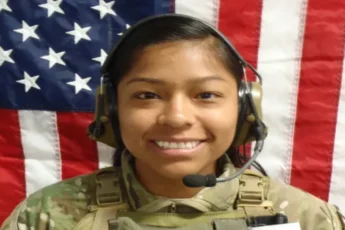
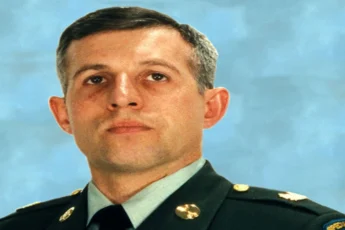
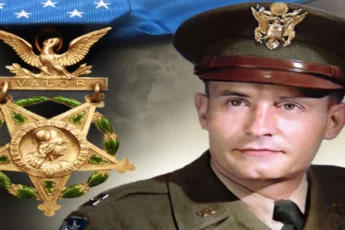
Leave a Comment